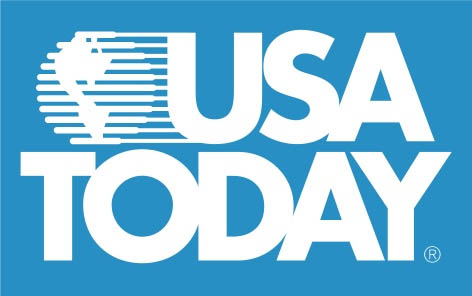Main|Bio|Books|USA Today columns|Opeds|Boston.com blog|Media|Other Publications| Speaking|Links

In a
win for victims and facts, Alex Jones is being held accountable for
misinformation
James Alan Fox and Michael Rocque
Opinion contributors
Published 6:00 a.m. ET Nov. 19,
2021
As a result of Monday's ruling by a
Connecticut judge, InfoWars founder and right-wing commentator Alex Jones
must pay damages to the families of victims of the Sandy Hook school
massacre for his unsupported claims that the shooting was a "giant hoax.
Whatever the size of the
yet-to-be-determined award, it is an important victory for the plaintiffs -
but also for opponents of conspiracy theories that stifle our ability to
understand and prevent such tragedies.
There is a long history of dubious,
half-baked conspiracies related to mass shootings. The "false flag" theory,
which suggests that these incidents are staged or perpetrated by government
operatives, has been linked to large-scale massacres in El Paso, Texas,
Dayton, Ohio and Boulder, Colorado.
Students who survived the 2018 shooting at
Marjory Stoneman Douglas High School in Parkland, Florida, have been called
"crisis actors" after they became vocal proponents for gun control.
Ripe for
conspiracy theories
Several rampage shootings, including the
2017 massacre at a Las Vegas outdoor music festival, have been falsely
blamed on Antifa.
And in arguably the most bizarre and
outrageous case, some conspiracy theorists speculated wrongly that the spate
of school shootings in the late 1990s were orchestrated by then-President
Bill Clinton.
The alleged evidence? A map showing the
locations of the shootings as falling on a pair of straight lines that cross
at Clinton"s hometown of Hope, Arkansas.
As high-visibility events, mass shootings
are ripe for conspiracy theories. They can proliferate online, where
anonymous posting allows people to advance baseless notions about secret
cabals committing murder - claims that then spread like wildfire on social
media platforms. The increasing political polarization, in which each side
is quick to vilify the other, makes for fertile ground for conspiracy
theories to be fomented and embraced, even in the absence of any hard
evidence.
When a horrific tragedy occurs, it is
psychologically beneficial to cast blame on a group or organization that one
feels is evil to begin with, rather than accept the potentially random
nature of mass shootings.
Stretching the
logic
Just as questionable conspiracy theories
seek to assign blame, mass shootings frequently spawn allegations of legal
culpability, often involving a logical stretch in an attempt to assign
fault.
For example:
* Lawsuits
against the McDonald's Corp. following the 1984 fatal shooting of 21 victims
at a California franchise and against Cinemark in connection to the 2012
massacre at a Colorado theater that invoked a claim of inadequate security.
It would seem unreasonable, however, to expect armed guards and metal
detectors at the entrances or to have servers and ushers carry firearms.
* Rather
than accept a settlement offer by the state, the families of two victims of
the 2007 Virginia Tech massacre sued for wrongful death, claiming the
university failed to warn students promptly enough after an early morning
double homicide inside a dorm followed hours later by the massive shooting
rampage. The Virginia Supreme Court overturned a jury verdict for the
plaintiffs since university officials had reasonably believed (although
incorrectly) the dorm shooting was domestic in nature and that the campus
community was not in danger.
* The
manufacturer of the 100-round magazine employed in the 2019 Dayton mass
shooting was sued even though its possession (as opposed to use) is not
actually prohibited under Ohio law. Also, the lawsuit following the
Pittsburgh Synagogue shooting argued that the gun lobby contributed to the
gunman's anti-Semitic views.
* Eli
Lilly Pharmaceutical was sued in connection to a 1989 massacre at a Kentucky
printing plant when an employee who was on long-term disability for
depression killed eight and wounded 12 after being prescribed Prozac.
However, the medication only helped the disgruntled gunman to gather the
energy and will to carry out an assault he had been planning for months
prior to taking the drug.
These are just a few of the so-called
third-party lawsuits that attempt, often unsuccessfully, to hold government
bodies or deep-pocket corporations responsible financially for the murderous
actions of some angry or hateful individual. They, in effect, deflect blame
from the person truly responsible for deliberately and methodically
executing innocent victims. The winners are insurance companies that have
capitalized by underwriting mass shooting indemnification policies.
The lawsuit against Jones, however, involves
his direct responsibility for promoting emotional distress and harassment of
grieving families. In an effort to gain fame, fortune and followers, he
recklessly spread false claims without producing a shred of evidence that
the shooting was staged. As such, his deeds are not protected as free
speech, just as shouting fire in a crowded theater is dangerous unless there
is evidence of smoke or flames. This lawsuit against Jones - and the victory
for the families - is anything but frivolous.
James Alan Fox is the Lipman
Professor of Criminology, Law, and Public Policy at Northeastern University
and a member of the USA TODAY Board of Contributors
and co-author of "The Will to Kill."
Follow him on Twitter@jamesalanfox.
Michael Rocque is Associate Professor of Sociology at Bates College and a
member of the Scholars Strategy Network.